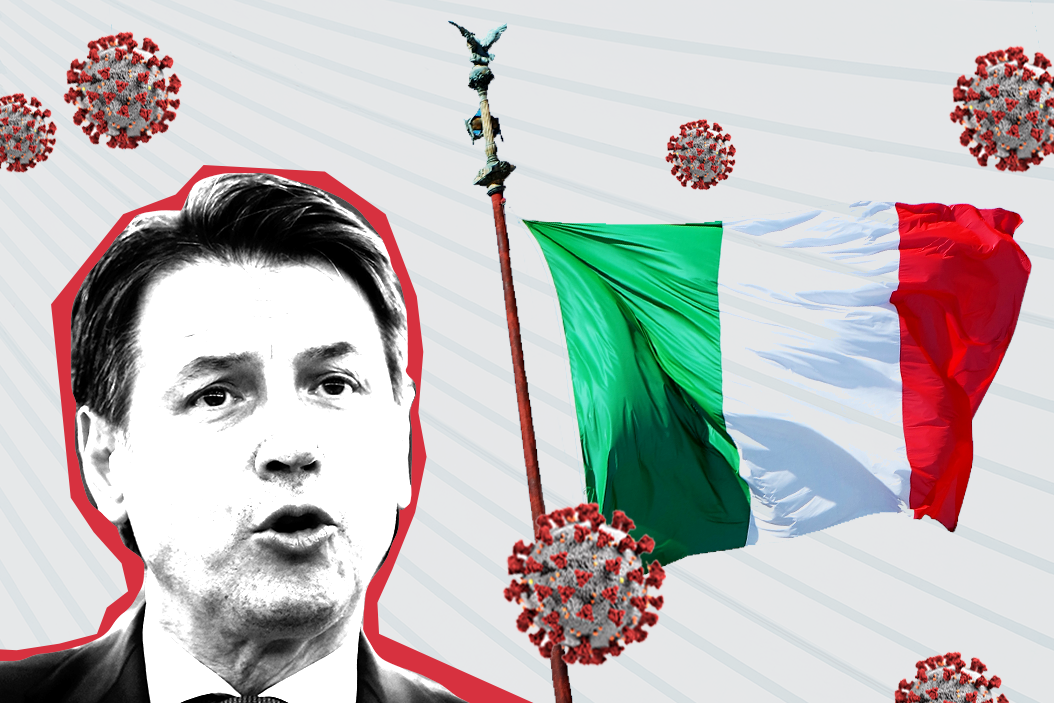When Italy's Prime Minister Giuseppe Conte resigned Tuesday — plunging the country into chaos as it faces once-in-a-generation public health and economic crises — he became the fourteenth Italian to vacate the prime ministership in three decades. (For contrast, Germany has only had three chancellors since 1982, and France has had five presidents.)
But Conte, who had no previous political experience until he was tapped for the top job in 2018, is not so much throwing in the towel as he is taking a massive gamble that President Sergio Mattarella will again appoint him to head Conte's third coalition government in less than three years.
The recent dysfunction is unique even within the context of instability-prone Italian politics. How did Italy get here, and what might come next?
Giuseppe Conte — a political chameleon. A law professor with no political chops, Conte came to lead a populist coalition of the anti-establishment Five Star party and the right-wing League party in 2018. But when the coalition of convenience collapsed after just 14 months, Conte quickly learned to navigate Italy's choppy politics and stayed on, leading the successive populist-center left government until its recent collapse.
Risk vs return. Conte decided to resign after a small left-wing party led by former Italian prime minister Matteo Renzi pulled its support for the government last week, claiming that the prime minister had let technocrats — rather than elected officials — oversee spending of $200 billion in EU relief funds. But in doing so, Conte is now taking a massive gamble.
Politically diminished after losing his majority in the Senate — which will hamstring his ability to pass legislation during the ongoing national emergency — Conte is betting that he can lie low before being reappointed to head Italy's next government.
But the political risks loom large. If a new government isn't formed in the near term, Italy could go to new elections, which would be a boon for the far-right League party currently leading the polls. (Though there's no guarantee that the League party, led by right-wing firebrand Matteo Salvini, could form a stable coalition either.)
Alternatively, Italy's president could decide that a third Conte-led government is simply untenable, and tap another technocrat to lead a mix of ideologically-opposed parties that's unlikely to remain in place for the long haul. This would only breed further instability as the government is already struggling to roll out a COVID vaccine (Rome has threatened to sue Pfizer over drug shortages), as well as to manage the doling out of billions of dollars in pandemic aid from Brussels.
Indeed, the stakes couldn't be higher for pandemic-battered Italy, which has recorded over 85,000 deaths from COVID-19, one of the highest per capita death rates in the world. After a series of lockdowns, its tourism-dependent economy has been pummeled, with GDP shrinking by around 10 percent in 2020.
When Italy emerged as a COVID epicenter last spring, Prime Minister Conte became a steady presence, addressing the nation frequently, and leading the country's top-down pandemic response. Conte is now betting that the trust he has built with the Italian people (he currently has a solid approval rating of 56 percent) will offset any perceptions of his role in spurring a new chapter of political chaos amid the national emergency.
In Italy's notoriously complicated political system, this sort of upheaval is par for the course. But pandemic politics don't reflect business as usual — and if Conte's gamble backfires, it could dash his hopes of making politics his full-time gig.
